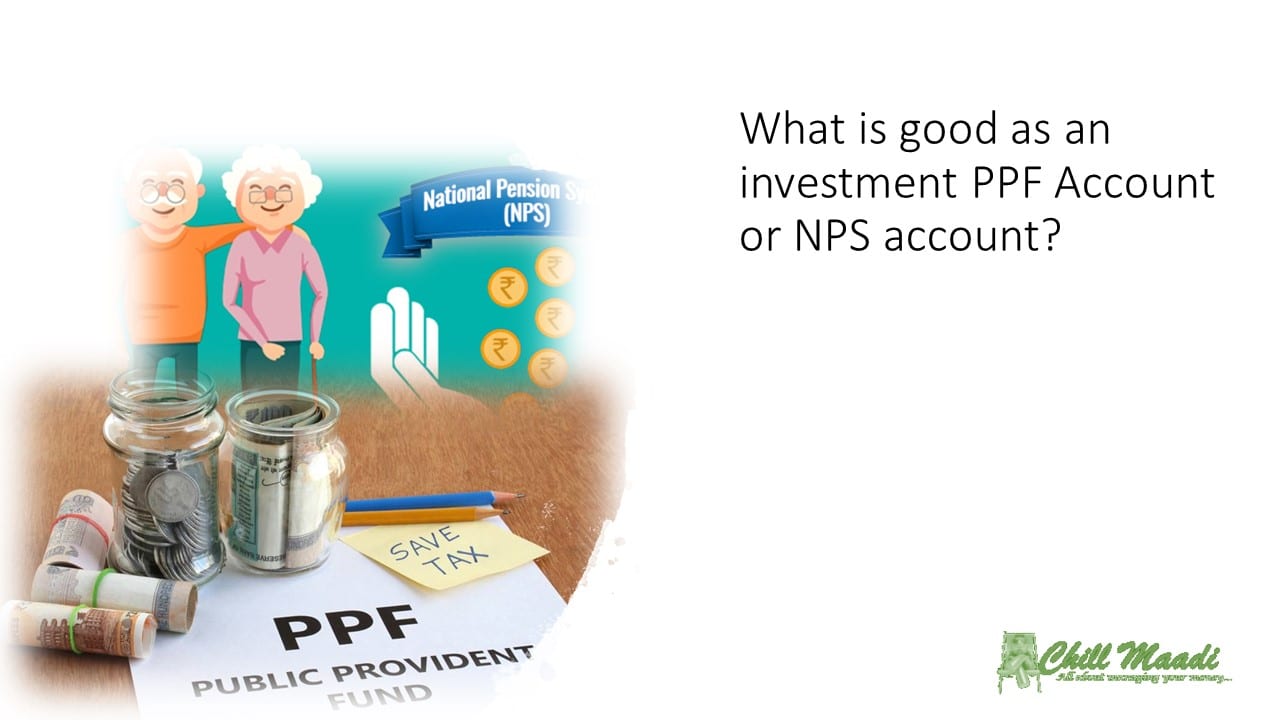PPF account or Public Provident Fund is a popular investment option among Indians. But the National Pension Scheme or NPS account also has a large number of investors in the country right now. When you are starting to save money for a more extended period, you will get stuck in confusion to select the right one for you. Most of the people do not know the necessary details of these saving schemes. And if you do not know the key factors of these two, you will be unable to select the best one.
What is PPF?
PPF (Public Provident Fund) is a government-backed savings option. You can invest from Rs.500 to Rs.1.5 Lakhs per year. And there is no such age limit or group to open a PPF account. It has a duration of 15 years for completion of the investment.
PPF has a lock-in period. So, once you invest in it, you cannot ask for withdrawing an amount. NRIs cannot invest in PPF.
What is NPS?
NPS (National Pension Scheme) is a pension scheme that is authorized by the government of India. It is a market-linked pension scheme. People from the age of 18 to 60 years can invest in NPS. NRIs can also invest in NPS. There is no such lock-in period in NPS like PPF. It means that one can save money until the age of 60. If you want to extend it more, you can do it for up to 70 years.
Which one to choose: PPF or NPS
It is very difficult to state only one investment option between these two. PPF and NPS are two different types of investment options. So, a direct comparison between these two is almost impossible. But you can judge some key factors of these investment options for choosing the appropriate one. Here is a brief discussion on the same.
Security and safety of investment
It is essential to have a safe investment. And you will never want to lose your hard-earned money in the name of investment. PPF is a low-risk investment option. Here the return is moderate. The interest rate evolves around 8%. So, for secured financing, you can always try PPF.
NPS is a market-linked retirement investment. The returns you get, it comes based on the activities of pension fund managers. But you can change managers as a result of dissatisfaction. The risk factor is low to moderate for NPS.
Investment returns
In the case of returns, PPF provides an average rate. It is around 7% to 8%. So, PPF is like a fixed investment and saving option. There is nothing unexpected in the case of return and risk. And NPS returns act as per the performances of the NPS Funds. You can get up to 75% allocation to equity with NPS. There are many pension funds in India offering high returns like SBI Pension Funds Pvt. Ltd, HDFC Pension Management Co. Ltd., and UTI Retirement Solutions Ltd. You can also choose some other pension funds. The performances of these funds keep fluctuating with the market condition.
Withdrawal and liquidity
PPF has tenure of 15 years for continual investment. And you can withdraw the partial amount after five years of investment or account opening. As there is a lock-in period in PPF account, the liquidity of the invested amount is almost none.
NPS account allows you to withdraw money after three years of account opening. But in terms of liquidity, it is also not much liberal. You can withdraw money only for specific issues like house building, marriage, etc.
There are lots of terms and conditions in both PPF account and NPS account for the withdrawal of money.
Tax benefits
PPF account has lots of tax exemption opportunities. You can enjoy tax deduction benefits under the section of 80c of Income Tax Act, 1961 with PPF.
You can enjoy a tax deduction up to one and a half lakh only. And you can also enjoy an additional tax deduction benefit under Section 80 CCD (1B) for NPS account. After maturity, 40% of the amount will be tax-free.
Final take
Both of the investment options are useful for long term investment. And PPF has a lesser risk than any financial plan. But if you focus on the retirement plan, you can opt for NPS. It will impart higher benefits. And you can enjoy your pension after the age of 60. So, overall, NPS is a pension fund dependent investment plan. And the return might fluctuate with market status. If you do not have any issue with such fluctuation, you can choose NPS over PPF for a higher retirement benefit.

2 thoughts on “PPF Account or NPS account – which is good as an investment?”
Comments are closed.